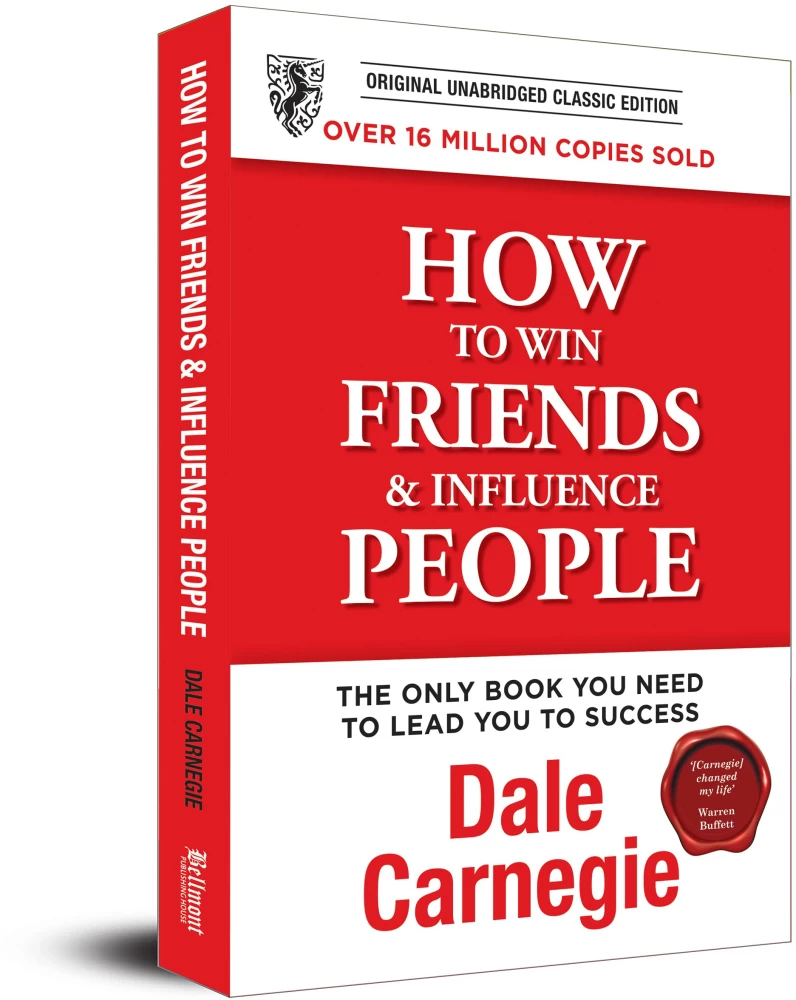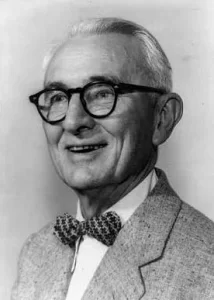“How to Win Friends and Influence People” by Dale Carnegie is a timeless self-help classic that provides invaluable insights into the art of human relations and effective communication. Published in 1936, the book outlines practical principles that remain relevant in fostering positive relationships in both personal and professional spheres. Carnegie’s teachings emphasize the importance of genuine interest in others, active listening, and the power of appreciation.
By mastering these interpersonal skills, readers can enhance their social influence, build lasting connections, and ultimately achieve personal and professional success. The book is divided into several sections, each addressing different aspects of human behavior and communication. From handling criticism gracefully to inspiring enthusiasm in others, Carnegie offers actionable advice backed by real-life examples.
The principles outlined in the book serve as a guide for anyone seeking to improve their people skills and navigate social interactions more effectively. With a focus on empathy, understanding, and a genuine desire to connect with others, “How to Win Friends and Influence People” remains a go-to resource for those looking to enhance their communication and relationship-building abilities.
Unlocking Human Connection: 5 Key Takeaways from Dale Carnegie’s ‘How to Win Friends and Influence People’ for Lasting Success
Introduction:
In the realm of self-help literature, few works have withstood the test of time as gracefully as “How to Win Friends and Influence People” by Dale Carnegie. Originally published in 1936, Carnegie’s insights into human relations and effective communication continue to resonate in today’s interconnected world. This timeless guide provides practical principles that go beyond mere social niceties, offering a roadmap for building genuine connections and achieving lasting success in both personal and professional spheres.
5 Key Takeaways:
1. The Power of Genuine Interest:
Carnegie’s foundational principle lies in the art of showing sincere interest in others. In a world often consumed by self-interest, taking the time to genuinely understand and appreciate those around us can transform relationships. By actively listening and asking thoughtful questions, we lay the groundwork for meaningful connections.
2. Active Listening and Empathy:
Effective communication extends beyond words; it encompasses active listening and empathy. Carnegie stresses the importance of truly understanding others’ perspectives and feelings. By empathizing with their experiences, we not only strengthen relationships but also open the door to collaboration and cooperation.
3. The Art of Appreciation:
Carnegie advocates for the power of appreciation in human relations. Recognizing and acknowledging others for their contributions and qualities fosters a positive atmosphere. By cultivating an environment of appreciation, we encourage individuals to excel and contribute their best to any endeavor.
4. Handling Criticism Gracefully:
Constructive criticism is an inevitable part of life, and Carnegie provides valuable insights into handling it gracefully. By reframing criticism as an opportunity for growth, we can navigate challenging situations with composure and turn feedback into a catalyst for personal and professional development.
5. Inspiring Enthusiasm in Others:
Carnegie’s teachings emphasize the impact of enthusiasm on human relations. By inspiring a genuine enthusiasm in those around us, we create a positive and uplifting environment. This not only boosts morale but also enhances our ability to influence and lead effectively.
Conclusion:
In a world where effective communication and genuine connections are more valuable than ever, Dale Carnegie’s “How to Win Friends and Influence People” stands as a beacon of timeless wisdom. By incorporating these key takeaways into our daily interactions, we unlock the potential to transform relationships, foster collaboration, and navigate the complexities of human connection with grace and authenticity. As we apply Carnegie’s principles, we embark on a journey toward not only winning friends but also influencing and inspiring those we encounter on our path to success.
7 Real-life Benefits from the Jist of “How to Win Friends and Influence People” by Dale Carnegie
“How to Win Friends and Influence People” by Dale Carnegie is a classic self-help book that provides practical advice on interpersonal relationships and communication. Here are seven real-life benefits derived from the principles outlined in the book:
1. Improved Communication Skills:
Carnegie’s book emphasizes the importance of active listening, genuine interest in others, and effective communication. By following these principles, individuals can enhance their communication skills, leading to better understanding and more meaningful conversations.
2. Building Positive Relationships:
The book encourages the cultivation of positive relationships through kindness, empathy, and a focus on the needs and interests of others. Applying these principles can help in creating lasting, meaningful connections with people in both personal and professional settings.
3. Enhanced Leadership Abilities:
Carnegie’s teachings emphasize the power of influencing others through positive leadership. By applying the principles, individuals can become more effective leaders, inspiring and motivating others to achieve common goals.
4. Conflict Resolution:
“How to Win Friends and Influence People” provides insights into resolving conflicts peacefully. By understanding the perspectives of others and finding common ground, individuals can navigate conflicts more effectively, fostering a positive environment.
5. Increased Persuasion Skills:
The book offers strategies for persuading others without creating resentment. Learning these techniques can be beneficial in various aspects of life, such as sales, negotiations, and everyday interactions where influencing others is important.
6. Boosted Self-Confidence:
Carnegie’s principles encourage individuals to focus on the positive aspects of themselves and others, fostering a sense of self-worth and confidence. This newfound confidence can positively impact personal and professional relationships.
7. Professional Success:
Applying the principles from the book can contribute to professional success. Building strong networks, effective communication, and the ability to work well with others are key factors in career advancement.
It’s important to note that the success of these principles depends on the sincerity and authenticity with which they are applied. The book advocates for genuine interest in others and a positive, ethical approach to relationships.
Frequently asked questions:
1: What are the key principles of Dale Carnegie’s ‘How to Win Friends and Influence People’?
Explore the timeless principles of genuine interest, active listening, and appreciation for building meaningful connections and achieving success.
2: How can ‘How to Win Friends and Influence People’ help with professional development and leadership skills?
Discover actionable strategies in the book for effective leadership, workplace communication, and building positive relationships in your career.
3: Are the principles applicable to introverts and those with social anxiety?
Yes, find adaptable tips in the book to improve social skills and boost confidence, catering to individuals of all personality types.
4: Can ‘How to Win Friends and Influence People’ enhance personal relationships?
Absolutely. Learn how to navigate family, friendships, and romantic connections with greater understanding and empathy using the book’s principles.
5: How relevant are the principles in today’s professional landscape?
The book’s principles remain relevant in contemporary settings, offering valuable insights into human relations, communication, and interpersonal skills.
6: Are there specific industries where ‘How to Win Friends and Influence People’ principles are particularly valuable?
The book is versatile, benefiting professionals across various industries by refining communication skills and fostering effective collaboration.
7: Can ‘How to Win Friends and Influence People’ be used for team-building exercises and workshops?
Yes, leverage the book’s principles for group discussions and team-building activities aimed at improving communication and collaboration within teams.
8: How can individuals apply Dale Carnegie’s teachings in their daily lives?
Actively practice genuine interest, active listening, appreciation, and enthusiasm to incorporate the book’s principles into everyday interactions for personal and professional growth.
9: Is there an ideal age group for readers of ‘How to Win Friends and Influence People’?
The book is suitable for readers of all ages, offering valuable insights for young adults entering the workforce to seasoned professionals seeking to refine their interpersonal skills.
10: Can ‘How to Win Friends and Influence People’ be recommended for those seeking self-help in communication and relationships?
Yes, ‘How to Win Friends and Influence People’ is a highly recommended resource for individuals looking to improve communication, build relationships, and achieve success in various aspects of life.
10: Is there an Audio version of “How to Win Friends and Influence People”?

Who is Dale Carnegie?
 Dale Carnegie (1888–1955) was an American writer, lecturer, and self-improvement guru who gained widespread acclaim for his influential works on communication, interpersonal skills, and personal development. Here is a brief biography of Dale Carnegie:
Dale Carnegie (1888–1955) was an American writer, lecturer, and self-improvement guru who gained widespread acclaim for his influential works on communication, interpersonal skills, and personal development. Here is a brief biography of Dale Carnegie:
Early Life:
Born on November 24, 1888, in Maryville, Missouri, as Dale Breckenridge Carnegie, he was the second son of poor farmers. Carnegie attended State Teacher’s College in Warrensburg, where he studied acting and public speaking.
Career Beginnings:
After college, Carnegie worked as a salesman and actor. He initially gained public attention with his lectures and courses on self-improvement and public speaking. In 1912, he started teaching his own adult education courses, emphasizing the importance of effective communication and interpersonal skills.
Legacy:
Dale Carnegie’s most enduring legacy is his book “How to Win Friends and Influence People,” published in 1936. The book became a bestseller and is still widely regarded as one of the most influential self-help books ever written. It offers practical advice on handling people, making friends, and influencing others positively.
Other Works:
In addition to “How to Win Friends and Influence People,” Carnegie authored several other books, including “How to Stop Worrying and Start Living” (1948) and “The Dale Carnegie Course in Effective Speaking and Human Relations.” His books have been translated into numerous languages and continue to sell millions of copies worldwide.
Dale Carnegie Training:
To expand the reach of his teachings, Carnegie founded the Dale Carnegie Institute in 1912. The institute offers courses and training programs based on his principles of self-improvement and interpersonal skills. It has become a global organization with a presence in many countries.
Personal Philosophy:
Carnegie’s teachings were rooted in the belief that success in both personal and professional life is significantly influenced by one’s ability to communicate effectively, understand human nature, and build positive relationships. His principles emphasize genuine interest in others, active listening, and the importance of fostering a positive and respectful environment.
Later Years:
Dale Carnegie continued to be active in writing and teaching until his death on November 1, 1955, in Forest Hills, New York. His books and courses remain influential, and his ideas continue to be embraced by individuals seeking personal and professional development.
Dale Carnegie’s impact on the self-help genre and his timeless advice on human relations ensure that his contributions to personal development are still widely recognized and practiced today.
Popular Quotes from “How to Win Friends and Influence People” by Dale Carnegie
“You can make more friends in two months by becoming interested in other people than you can in two years by trying to get other people interested in you.”
“Talk to someone about themselves, and they’ll listen for hours.”
“The only way to get the best of an argument is to avoid it.”
“Criticism is futile because it puts a person on the defensive and usually makes them strive to justify themselves. Criticism is dangerous, because it wounds a person’s precious pride, hurts their sense of importance, and arouses resentment.”
“Remember that a person’s name is to that person the sweetest and most important sound in any language.”
“The royal road to a person’s heart is to talk about the things he or she treasures most.”
“A person convinced against their will is of the same opinion still.”
“Any fool can criticize, condemn, and complain, but it takes character and self-control to be understanding and forgiving.”
“It isn’t what you have or who you are or where you are or what you are doing that makes you happy or unhappy. It is what you think about it.”
“Don’t be afraid of enemies who attack you. Be afraid of the friends who flatter you.”
No Comments on “How to Win Friends and Influence People” by Dale Carnegie